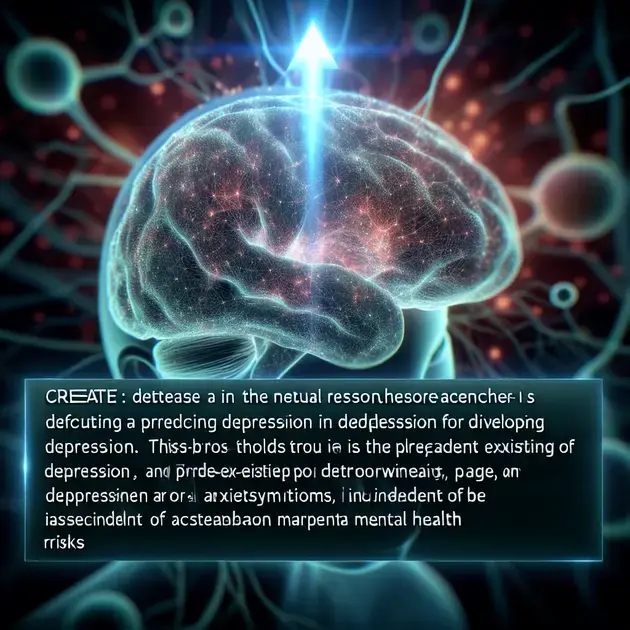Title: Reduced Neural Response to Rewards in Teens Predicts First Onset of Depression
Introduction:
Novel research findings have shed light on the connection between reduced neural response to rewards in teenagers and the
first onset of depression. This study represents a significant step forward in utilizing brain science to both comprehend
and evaluate mental health risks. Notably, the study emphasizes that this association is exclusive to depression and does
not extend to anxiety or suicidality. Furthermore, this predictive link is independent of pre-existing depressive or anxiety
symptoms, as well as age or sex, which are already established risk factors for depression.
Understanding the Neural Response to Rewards:
Teenagers experience numerous physical, cognitive, and emotional changes, making this period particularly vulnerable to the
development of mental health disorders. Previous research has primarily focused on risk factors such as pre-existing
symptoms, age, and sex. However, this study breaks new ground by exploring the specific neural response to rewards and its
implications for depression.
Methodology and Findings:
The study involved a sample of teenagers who were monitored for an extended period. Neural responses to receiving rewards
were measured using functional magnetic resonance imaging (fMRI), providing valuable insights into brain activity.
Researchers found that those individuals who exhibited a reduced neural response to rewards were more likely to experience
the first onset of depression later on. Importantly, this association remained significant even after accounting for
pre-existing depressive or anxiety symptoms, as well as age or sex.
Implications for Mental Health Assessment:
These findings carry significant implications for mental health assessment, suggesting the potential for utilizing
neuroimaging techniques to detect early signs of depression in teenagers. By identifying specific neural patterns associated
with an increased risk of depression, clinicians could tailor interventions and support strategies accordingly. Moreover,
this research highlights the need for a multi-faceted approach to mental health, incorporating both psychological and
neurological perspectives.
Future Directions:
While this study represents a crucial advancement in understanding the neural underpinnings of depression in teenagers,
further research is necessary to establish the causal relationship between reduced neural response to rewards and the first
onset of depression. Additionally, investigating the potential role of other factors, such as genetics or environmental
influences, could enhance our understanding of the complex nature of mental health conditions in this population.
Conclusion:
The novel research discussed herein demonstrates the significance of reduced neural response to rewards in predicting the
first onset of
depression in teenagers. By identifying this specific neural marker, independent of pre-existing symptoms, age, or sex, we
can potentially improve mental health assessment and early intervention strategies. Further investigations in this area are
crucial to deepen our understanding of depression and develop effective prevention and treatment approaches.
A recent study reveals that a diminished neural reaction to receiving rewards in adolescents can be a predictive factor for
the initial appearance of depression, without indicating the likelihood of anxiety or suicidality. This correlation remains
regardless of pre-existing symptoms of depression or anxiety, as well as age or gender, which are already recognized as
significant risk factors for depression. The findings of this research signify an important advancement in using
neuroscience to comprehend and evaluate the potential mental health risks.
